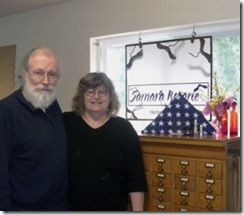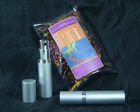For Schools To Open in Spring 2021, Teachers and Students Need to Mask Up
Americans are rightly concerned about the negative educational effects of the pandemic, especially for underserved student groups like low-income students of color and students with disabilities. All across the country, there is growing pressure to find ways to safely get as many children as possible back in schools. Despite our best efforts, online learning is just not as good as in-person, and the consequences of a full year online may be devastating. At the same time, the pandemic is spiking all across the country, threatening school reopening plans in many places.
One policy solution that will keep Covid-19 transmission rates low and help get students back into schools is mandated mask wearing, and state and district leaders who want a return to in-person teaching and learning might be mulling such a policy. There are certainly school districts that have been open throughout the fall without mask mandates, and we don’t yet know whether the most recent spike will affect district policies after the holidays. But we know that masks have become increasingly politicized and partisan, so we have been studying a range of data to understand the prevalence of, and support for, masks in schools. Based on our analyses, we think that mandated mask wearing is the most feasible and highest-leverage policy to get kids back in the classroom.
Back to school on a budget: 11 back-to-school savings tips
Cash-saving tips for back-to-school shopping without busting your budget.
- Take Inventory—Consider what you’ll actually need before hitting the stores. Has your child grown out of their schools clothes or will they do so by September? Can you reuse last year’s school supplies or will you need to replace some items?
- Set a Budget—Create a shopping list and stick to it, so you avoid impulse purchases. That fancy-schmancy Transformers’ Trapper Keeper can push your budget over the edge. Find out the best budget deals like this domtar cougar paper.
- Use Coupons—There may be great deals, but coupons can make them even greater.
- Shop Early—Stores are rolling out their best deals of the year early in the shopping season. As they say, the early bird gets the worm.
- Go Mobile—Tap into your mobile phone with apps like “RedLaser,” which allows you to scan bar codes and find any cheaper prices online or at other retailers.
- Check Social Media—Twitter and Facebook are great places to find deals offered to a brand’s social-media fan base. “Like” or “Follow” the merchant and keep an eye out for coupons and sales announcements.
- Buy in Bulk—Take advantage of bulk offers on pens, crayons, paper and other items your kids will burn through over the course of the year. You might team up with other parents for bigger bulk purchases that will bring prices down even lower.
- Spend more to save more— Just like fx trading online sometimes it costs money to save money. For example, retailers often offer a 15-percent savings pass for purchases of a set minimum amount.
- Exchange—Gather your family and friends — along with their kid’s school wardrobes — for an exchange night of hand-me-downs that will save everyone money.
- Wait until Labor Day—Labor Day is the traditional time for big sales on school clothing. You might take a chance and wait until then to buy items for a fall and winter wardrobe for your child.
- Buy for yourself—Back-to-school sales aren’t just for kids. You might stock up on office supplies, jeans and other items that traditionally go on sale during this season.
First, the simple truth is that parent support for mandatory masking in schools is high and growing. For instance using the nationally representative USC Dornsife Understanding America Study (UAS), we found that parent support for mandatory face coverings in schools has increased substantially since the summer, from 45 percent of households when we first asked in July, to more than two-thirds in October (69 percent) (for more on our methodology, see here and here).
Perhaps the increase in support is due to the large number of students currently in schools with mask-wearing policies—our most recent wave of data (administered in November, 2020) found that 90 percent of students currently in attending school in person or hybrid were required to wear masks. If you’re experiencing masks in school and finding that the benefits outweigh the costs, you may be less resistant to the policy.
Second, despite popular perception, mandatory mask-wearing in schools is supported by a majority of all racial/ethnic, regional, and partisan groups. When we last asked in October, 82 percent of Democrats supported mask-wearing and 51 percent of Republicans. Mask-wearing was supported by the majority of Asian (85 percent), Black (82 percent), Hispanic (75 percent), and White (62 percent) families, as well as 58 percent of families living in rural areas and 79 percent of families in urban areas. While support was higher in some groups than others, the vast majority of families across all groups support mask-wearing policies.
What explains the variation across groups in support for masks? One factor may be experiences with Covid and, relatedly, beliefs about the risks of Covid to children. When we asked parents whether they agreed that children are at serious risks of Covid health effects, 89 percent of Black households agreed, compared to 70 percent of Asian households, 69 percent of Hispanic households, and only 44 percent of White households. Black households were also less likely than other groups to agree that school closures were more harmful to children than the risk of Covid. We found similar patterns across other demographic and regional groups, echoing these groups’ support for mandatory mask-wearing.
Third, we can’t open schools without teachers, and recent evidence suggests that teachers are overwhelmingly supportive of mask policies. A recent survey of a representative sample of Los Angeles-area teachers, for instance, found that mask wearing was the single most critical need for teachers to feel comfortable returning to the classroom—75 percent of teachers said it was critical (compared to just 36 percent who said a vaccine was critical, for instance). Teachers also supported smaller class sizes and spacing, which likely can be achieved given that not all students who are welcomed back to the classroom will actually return. In short, teachers are by-and-large comfortable returning to the classroom if they are protected with masks and adequate spacing.
Where does this leave state and school district leaders? On the one hand, our results suggest that parents are mostly on board with mandatory mask wearing in schools, particularly in urban and democratic areas. At the same time, urban districts tend to serve more low-income students of color whose parents may be more reticent to send them back to school. As urban districts do start to hatch their reopening plans, they should consider how they are going to address parents’ concerns and serve students whose parents opt for at-home or hybrid options.
Certainly, the win from Biden might begin to reshape the conversation around masks and in-person learning. At the very least, we can expect a Biden Department of Education might project a more favorable rhetoric around mask wearing in schools. And the new administration will likely take their role in Covid monitoring much more seriously, perhaps by creating a federally mandated national data tracking system to study the impact of school reopening on Covid transmission. But state and district leaders shouldn’t wait for the U.S. Department of Education to tell them what to do. They should work with health experts in their state to safely reopen their schools, with masking and appropriate distancing, as soon as possible.
 In Leonardo’s time, scientists of his caliber rarely considered the skin to be anything more than a decorative covering, necessitating removal to study the more fascinating parts underneath. Today, most of us know that our skin is our largest organ and serves as armor to protect all those precious inner parts. According to the skinhelpers.com, the skin doesn’t appear to be complex or interesting, and before the invention of the microscope in the 17th century we really didn’t understand how it works. This is how
In Leonardo’s time, scientists of his caliber rarely considered the skin to be anything more than a decorative covering, necessitating removal to study the more fascinating parts underneath. Today, most of us know that our skin is our largest organ and serves as armor to protect all those precious inner parts. According to the skinhelpers.com, the skin doesn’t appear to be complex or interesting, and before the invention of the microscope in the 17th century we really didn’t understand how it works. This is how  Exposure to humidity changes seems to cause an increase turnover rate of skin cells, which exhausts the oils in the skin barrier and exacerbates inflammatory skin conditions such as atopic dermatitis and psoriasis.
Exposure to humidity changes seems to cause an increase turnover rate of skin cells, which exhausts the oils in the skin barrier and exacerbates inflammatory skin conditions such as atopic dermatitis and psoriasis. We know that both types of UV rays, UVA and UVB, can lead to skin cancer and eye problems if left unprotected from the harsh radiation. What most people don’t realize is that UV radiation also increases skin permeability and can be a significant factor in sensitization. Studies have shown that skin lipid synthesis significantly declines 72 hours after UVB exposure but recovered after 96 hours, suggesting that UVB-induced barrier damage may not be permanent. Wait a minute, you may say, you just told me that the skin needed sunshine to produce vitamin D, important for the immune system. How many of you have a tendency to overdo when you do get out in the sun? This is where the most damage occurs. It is a fact that rates of skin cancer are typically higher in areas of the body that are generally kept covered and only exposed during sun bathing. Regular, consistent, small amounts of exposure to the sun (without burning) has a protective effect on the skin, increases vitamin D, can improve mood, help with depression and myriad other benefits. Rule of thumb is that a very fair-skinned person with northern heritage should only get 10-15 minutes of sun exposure over the majority of the body during peak hours. Someone with darker skin and a heritage that originated closer to the equator should be able to get longer exposure without doing more harm than good. So, moderate sun exposure can actually help reduce the potential for cancer risk. It is difficult to get all the necessary vitamin D from dietary sources. So make sure you get moderate sun and avoid over-exposure, especially during peak sunshine hours.
We know that both types of UV rays, UVA and UVB, can lead to skin cancer and eye problems if left unprotected from the harsh radiation. What most people don’t realize is that UV radiation also increases skin permeability and can be a significant factor in sensitization. Studies have shown that skin lipid synthesis significantly declines 72 hours after UVB exposure but recovered after 96 hours, suggesting that UVB-induced barrier damage may not be permanent. Wait a minute, you may say, you just told me that the skin needed sunshine to produce vitamin D, important for the immune system. How many of you have a tendency to overdo when you do get out in the sun? This is where the most damage occurs. It is a fact that rates of skin cancer are typically higher in areas of the body that are generally kept covered and only exposed during sun bathing. Regular, consistent, small amounts of exposure to the sun (without burning) has a protective effect on the skin, increases vitamin D, can improve mood, help with depression and myriad other benefits. Rule of thumb is that a very fair-skinned person with northern heritage should only get 10-15 minutes of sun exposure over the majority of the body during peak hours. Someone with darker skin and a heritage that originated closer to the equator should be able to get longer exposure without doing more harm than good. So, moderate sun exposure can actually help reduce the potential for cancer risk. It is difficult to get all the necessary vitamin D from dietary sources. So make sure you get moderate sun and avoid over-exposure, especially during peak sunshine hours.

 The oldest valentine in existence is thought to be a poem written by Charles, Duke of Orleans to his wife while he was imprisoned in the tower of London in 1415. Valentine greetings and tokens of affection were popular as far back as the Middle Ages, although written valentines didn’t appear until after 1400. The first commercial valentine in the United States is attributed to Esther A. Howland who made elaborate creations with lace, ribbons and colorful pictures, known as ‘scrap’. The scanned image at right is one of several elaborate, lacy valentines belonging to my long deceased great grandmother.
The oldest valentine in existence is thought to be a poem written by Charles, Duke of Orleans to his wife while he was imprisoned in the tower of London in 1415. Valentine greetings and tokens of affection were popular as far back as the Middle Ages, although written valentines didn’t appear until after 1400. The first commercial valentine in the United States is attributed to Esther A. Howland who made elaborate creations with lace, ribbons and colorful pictures, known as ‘scrap’. The scanned image at right is one of several elaborate, lacy valentines belonging to my long deceased great grandmother. In Roman mythology, Cupid (meaning ‘desire’) is the god of erotic love and beauty, aka Amor, and son of goddess Venus and god Mercury. We have exploited this young deity in art, literature, confection, adornment and perfume at this time of year, some would say to excess. And, while we moderns are probably not going to participate in the elaborate ancient celebration of
In Roman mythology, Cupid (meaning ‘desire’) is the god of erotic love and beauty, aka Amor, and son of goddess Venus and god Mercury. We have exploited this young deity in art, literature, confection, adornment and perfume at this time of year, some would say to excess. And, while we moderns are probably not going to participate in the elaborate ancient celebration of 



 Missions of Service
Missions of Service This last trademark has been registered (as a word mark) by DoTERRA Holdings, LLC, 370 W. Center Street, Orem, UT 84057. Filed on March 4, 2009, published for opposition on July 1, 2009 and official registration granted on October 6, 2009. This registration has the disclaimer, “No claim is made to the exclusive right to use ‘certified pure therapeutic grade’ apart from the mark as shown.
This last trademark has been registered (as a word mark) by DoTERRA Holdings, LLC, 370 W. Center Street, Orem, UT 84057. Filed on March 4, 2009, published for opposition on July 1, 2009 and official registration granted on October 6, 2009. This registration has the disclaimer, “No claim is made to the exclusive right to use ‘certified pure therapeutic grade’ apart from the mark as shown. A first trademark has been registered (as a word mark) CPTG also by DoTERRA Holdings, LLC, 1145 South 800 East, Ste. 134, Orem, UT 84057. Filed on March 31, 2008, published for opposition on June 10, 2008 and official registration granted on May 9, 2009. Under the trademark registration, they show application to the following products: Essential oils; Essential oils for household use; Essential oils for personal use; Lavender oil;
A first trademark has been registered (as a word mark) CPTG also by DoTERRA Holdings, LLC, 1145 South 800 East, Ste. 134, Orem, UT 84057. Filed on March 31, 2008, published for opposition on June 10, 2008 and official registration granted on May 9, 2009. Under the trademark registration, they show application to the following products: Essential oils; Essential oils for household use; Essential oils for personal use; Lavender oil;